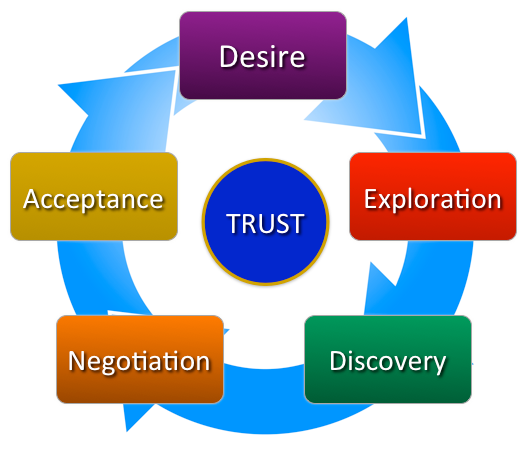Why the sheer brilliance of using a deep conversation to create a high-value relationship is utterly priceless.
"Deep conversations with the right people are priceless."
Anonymous
As of late, the art of conversation has been taking a beating. We all know it and, most importantly, we all see it. People still meet for lunch or dinner, but they don’t talk much to each other. Instead, they just immerse themselves in technology, only occasionally sharing a tweet or text. It’s all very surface level and hardly ever goes deeply into what really matters. While they are developing relationships, many of these people are missing out on the priceless value deeper conversation offers.
THE ART OF THE PRICELESS
For many years, I have been coaching my leadership and speaking clients to get out of their ivory tower and talk to their people. If all you know about a person is what is on their resumé, you “don’t know nothin’” about them. The same thing goes for colleagues as well. I once worked at a communications agency where we were prohibited from talking to each other except as it related to work.
A communications agency!
Hard to believe? Not really.
In many corporate circles, conversation is considered a waste of time. Idle chatter. The devil’s playground.
But, research has found that practicing the art of conversation is a sound business strategy. Even without the research, having deep conversations with clients, colleagues and audiences is a fundamentally sound behavior. After all, when you take a business and separate the processes and product from the enterprise what you have left are the people that work there. The same people that will spend endless hours pouring their souls into a product or service can hardly be bothered to explore and discover what matters most in their professional, public, and personal lives.
For many leaders, conversations may appear to be an unnecessary, costly expense. But what they are destined to learn when building a high-functioning team, is that deep conversations between the players is critical. This may not be news to some, but it is certainly a revelation on the state of human nature to many. What some leaders and speakers may view as a costly extravagance is actually a priceless experience.
Recently, Joe Maddon, World Series winning manager of the Chicago Cubs, has begun taking to dinner players who may be struggling or underperforming. It is his belief that getting to know the player better through deep conversations is a critical part of his job. He knows there is a postive benefit when the player knows his manager has concern for more than what happens between the foul lines. Maddon is it in for the long game, because winning is the result of lots of small wins collected over time. He knows winning in life has a direct correlation to winning on the field. He sees a manager’s role as not just managing how a team plays but managing the people who play on the team as well.
Deep conversations are the very foundation of a strong relationship. To build a strong lasting relationship all parties have to be invested in the process. Or, as our giraffes in the photo accompanying this blog demonstrate, sometimes you have to be willing to stick your neck out to get results. To build a strong relationship through deep conversations you must be willing to give details and disclosures about yourself (company) as well as receive the same in return from the other side of the relationship. Deep conversations really are priceless.
THE RELATIONSHIP DEVELOPMENT CYCLE
A while back, I developed The Relationship Development Cycle, a model for helping all of my clients learn how they could build stronger relationships. Stronger relationships with their clients, teams, and audiences. Through the use of this model, my clients are able to deepen the relationships they have with themselves (as leaders and speakers) and with others in the course of doing business, enhancing their communities, and enriching their personal and family lives.
The Relationship Development Cycle has five stages (Desire, Exploration, Discovery, Negotiation and Acceptance) that continuously revolve around a central hub (Trust) for stability. The engagement of this model can help anyone develop a deeper understanding and relationship with any person, place or thing. You can apply it to a skillset or a dataset. It works the same so long as the first stage (Desire) is present in the relationship. Without Desire, all relationships crumble through entropy and eventually cease to exist. It is one reason we tend to lose friendships over time. Without the Desire to maintain the relationship, it has a natural tendency to falter.
The hub of Trust acts to align the relationship based on the truthfulness of the information exchanged throughout the relationship.
If (when engaging this model to develop a deeper personal relationship with yourself about a skill, emotion or experience) you cannot maintain complete honesty, your self-relationship will spin out of alignment due to an imbalance of honest information. Since we often “lie” to ourselves as a defense mechanism many of us don’t often have the best relationships with ourselves. Don’t you deserve better?
You are one of the right people. Have a deep conversation with yourself.
The ability to build a strong relationship is not a “just add water” activity. It takes time, sincerity, honesty, creativity, and bravery to expose yourself willingly to another person (including yourself). For western thinkers it requires the ability to allow yourself time for reflection. Something the western mind tends to struggle with grasping.
In a recent commencement address to his daughter’s graduations class, Chief Justice John Roberts urged the graduates to “to stay involved with yourself." He imparted to them the following sentiment, "My advice is, when you get to college, to set a little time aside each day to think about things instead of simply acquiring more information. Do not read more, do not research more, do not take notes. Put aside books, papers, computers, telephones. Sit, perhaps just for a half hour, and think about what you're learning."
SOUND BUSINESS THINKING
If your goal is to build better work groups with higher levels of performance and reliability, I can recommend no better way than to practice The Relationship Development Cycle. Challenge all members of your organization to learn more about who they are, what they want and what they need from the work they do by engaging this model between themselves. Once you learn what people dream to achieve, you will see how you can help them fuel that desire.
For leaders and speakers, The Relationship Development Cycle is critical to developing the deep thought platforms you seek to use when communicating concepts and processes to your audience. By engaging The Relationship Development Cycle you’ll learn to stretch your ability for self-examination, strengthen your thinking muscle, and overcome the tendency to settle for the easy answers to tough questions. Remember, your value to individuals and organizations rest solely on the uniqueness of your vision and your ability to effectively articulate that vision with authority, brevity and clarity.
Click this link for a free copy of my one-page document about The Relationship Development Cycle and feel free to share it with colleagues, friends and partners. Most importantly, share The Relationship Development Cycle with yourself. Start today to begin building a strong relationship with yourself on a host of topics through deep intrapersonal conversations. You’ll soon see the most amazing transformation begin to happen when you stick your neck out just a little.
While you’re at it, stick your neck out a little and please share your comments on this post or suggestions in the comments section below. As always, please feel free to share this post with a friend or colleague.
Bringing Positivity to Everything,
The Brain Tamer



